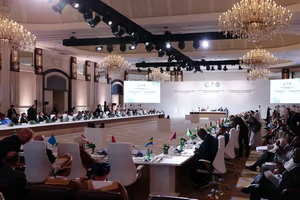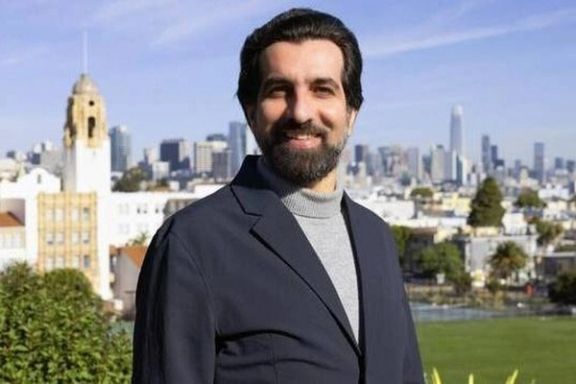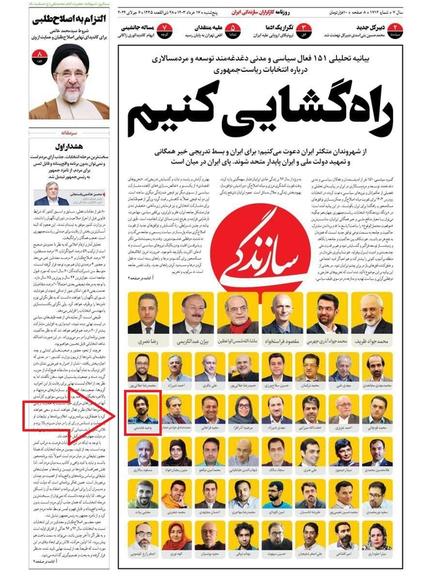Hussein, Iraq’s former president, used chemical weapons extensively against Iranian forces and Iraqi Kurds during the conflict.
“The truth must prevail, and those who supported Saddam’s chemical weapons program must be held responsible,” Araghchi told the 30th annual Conference of the States Parties to the Chemical Weapons Convention (CWC) in The Hague on Tuesday.
In December 2002, Berlin daily Die Tageszeitung reported that Germany was the country whose companies contributed most to Baghdad’s efforts to acquire weapons of mass destruction, citing documents Iraq submitted to the United Nations.
“We urge Germany to release the results of its past investigations and commit to full and transparent investigations about the involvement of its companies and nationals in enabling Saddam’s atrocities,” he said.
Relations between Berlin and Tehran are at a low ebb after Germany joined France and Britain in September in reimposing international sanctions on Iran for what the European powers see as defiance of UN nuclear inspections.
Tehran had also bristled at comments by German Chancellor Friedrich Merz during a surprise military campaign on Iran in June in which he described the attacks as "dirty work Israel is doing for all of us."
Araghchi said Iran’s unanimous election to the Chemical Weapons Convention Executive Council — the 41-member policy-making body of the Organisation for the Prohibition of Chemical Weapons — was “a meaningful step for all who believe in a world free of chemical weapons.”
“As a nation that has suffered deeply from Saddam’s chemical attacks during the 1980–1988 war on our people, Iran carries enduring wounds that still affect tens of thousands of victims and their families,” he said.
Araghchi attended the conference with Kamal Hoseinpur, a lawmaker from Sardasht, a city in Iran’s northwest near the border with Iraq that was hit by Iraqi chemical attacks in 1987.
Araghchi described Sardasht as “a global symbol of resistance, suffering and the call for justice.”
“The people of Sardasht endured chemical attacks whose consequences continue even today, made worse by unjust US sanctions that restrict access to vital medicines and medical care,” Araghchi said.
Araghchi contrasted Germany with the Netherlands, where Dutch businessman Frans van Anraat was convicted in 2005 for supplying Iraq with chemicals used to produce mustard gas during the 1980s.
“The judicial investigations by Dutch authorities which led to the prosecution and conviction of one Dutch individual is appreciated,” he said. “However, we all know that it was the very minimum and showed only the tip of the iceberg.”
“Justice for the victims is overdue, and their calls for justice must never be forgotten,” he added.
Araghchi's comments come as Iran's own government came under scrutiny after security forces used an unidentified "green gas" against protestors during the nationwide protests in 2022 after a young woman, Mahsa Amini, died in morality police custody.
In November 2022, videos were posted on social media that showed thick green smoke wafting through the streets in Javanrud in Western Iran as security forces there confronted protesters.
The German newspaper Bild reported in 2018 that Berlin had approved a license for a company to sell technology with potential military applications to Iranian firms which were ultimately used by the Syria in domestic chemical weapons attacks.


















